Social development encompasses a complex interplay of social, emotional, and cognitive processes that shape individuals' ability to navigate the intricacies of human interaction. From infancy through adolescence and into adulthood, the acquisition of social skills is vital for forming meaningful relationships, fostering empathy, and building a sense of belonging. But what truly defines social development? It goes beyond mere socialization; it involves understanding societal norms, adapting to diverse environments, and honing emotional intelligence. In a world increasingly interconnected yet plagued by social challenges, exploring the depths of social development becomes imperative for unraveling the complexities of human behavior and relationships.
Key Takeaways
- Social development shapes cognitive, emotional, and language skills.
- Parents play a significant role in fostering social and emotional growth.
- Peer interaction cultivates social skills, empathy, and cooperation.
- Cultural influences and socialization mold identity, promote inclusivity, and enhance societal understanding.
Importance of Social Development
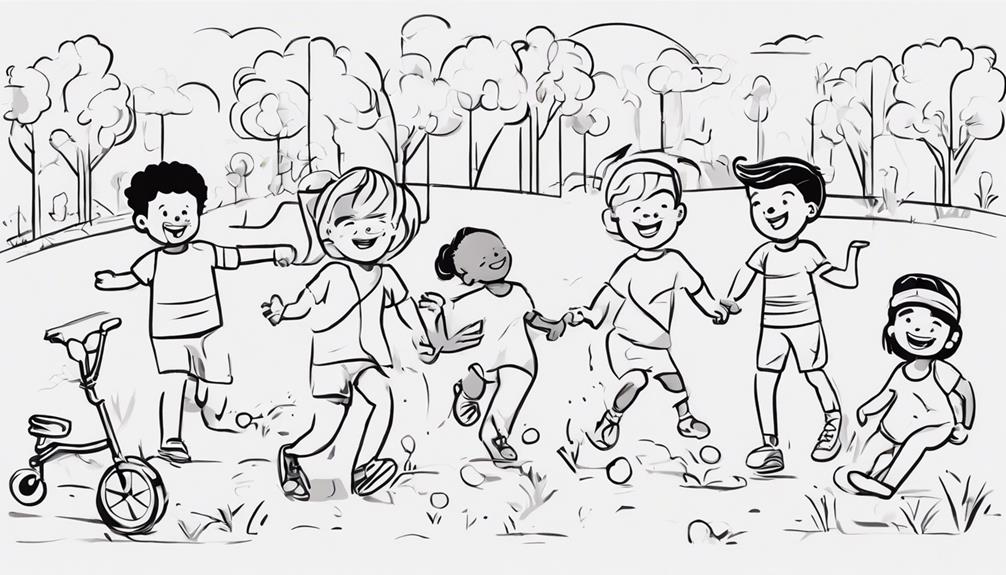
Social development plays a pivotal role in shaping the cognitive and emotional development of individuals, particularly in the formative years of childhood. The importance of social development in a child's development cannot be overstated. It is through social interactions that children learn to build language skills, self-esteem, and positive attitudes. By engaging with others, children also learn crucial skills such as how to form friendships and effectively resolve conflicts. These interactions impact various aspects of a child's growth and learning, ultimately enhancing their overall well-being.
Communication skills are a fundamental aspect of social development. Through interactions with parents, caregivers, and peers, children learn how to express themselves, listen actively, and understand social cues. Parents, in particular, play a vital role in supporting and nurturing their child's social development from an early age. By providing a secure and supportive environment for social exploration, parents contribute significantly to their child's social and emotional growth.
Developmental Milestones in Infants
During the early stages of life, infants experience significant developmental milestones that mark their progress in various aspects of growth and behavior. These milestones play a crucial role in shaping their ability to form relationships and interact with the world around them. Here are three key developmental milestones in infants related to relationships:
- Social Smiling: Around 2-3 months of age, infants typically start to smile and show positive reactions to caregivers. This milestone signifies the beginning of their social interactions and ability to connect with others emotionally.
- Attachment to Comfort Objects: Between 6-8 months, infants begin to develop attachments to comfort objects like blankets or stuffed animals. This behavior demonstrates their growing ability to form secure relationships and seek comfort from familiar objects.
- Imitation and Connection: Infants often imitate the actions and sounds of adults and other children as a way of learning and connecting. This milestone shows their inclination towards building social bonds through imitation and shared experiences.
Social Skills in Preschoolers
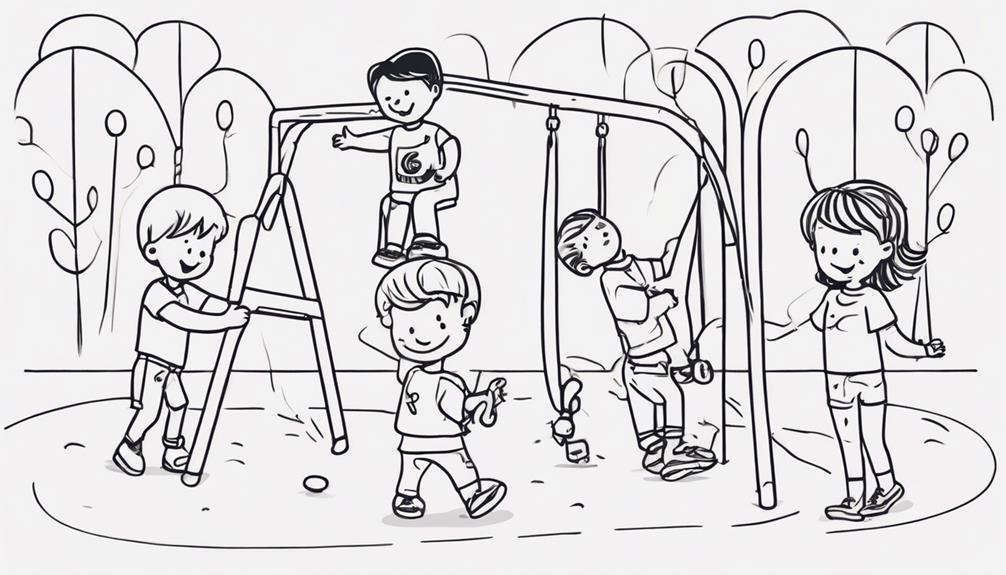
Preschoolers' social skills are a critical aspect of their development, shaping their interactions and relationships. Understanding the importance of peer interaction, the benefits of role-playing, and the building of communication skills are key elements in fostering their social growth. By focusing on these points, we can support preschoolers in acquiring the necessary skills to navigate social situations successfully.
Peer Interaction Importance
Engaging in peer interactions during early childhood fosters the foundational development of crucial social skills in young children. These interactions provide a platform for children to learn and practice essential social behaviors. Here are three key ways peer interaction benefits preschoolers:
- Social Skill Development: Preschoolers learn important social skills like sharing, taking turns, and cooperating through interactions with their peers.
- Emotional Intelligence: Peer interactions help children cultivate empathy, effective communication, and conflict resolution skills, which are vital for healthy emotional development.
- Social Competence: Positive peer interactions in preschool contribute to the growth of social competence and emotional regulation, laying the groundwork for successful social relationships in the future.
Role-Playing Benefits
Peer interactions in early childhood are a foundational aspect of social development, and one particularly valuable method for enhancing social skills in preschoolers is through engaging in role-playing activities. Role-playing benefits preschoolers by offering a platform to practice communication, cooperation, and problem-solving in a secure setting. By assuming different roles and scenarios, children develop empathy and gain insight into others' perspectives. This fosters creativity, encourages imaginative thinking, and expands their understanding of various social situations. Moreover, role-playing helps preschoolers learn about social norms, rules, and appropriate behaviors, thereby promoting social development and peer interaction. Through engaging in conversations, negotiating roles, and expressing thoughts and feelings during play, children also enhance their language development.
Communication Skill Building
Developing effective communication skills is a crucial aspect of social development in early childhood. Preschoolers learn to communicate through conversations with peers and adults, expressing thoughts and feelings using words and gestures. Social interactions in preschool also help children grasp essential skills like turn-taking and active listening. To foster communication skills effectively in preschoolers, it is important to emphasize the following:
- Empathy Development: Encouraging recognition and response to others' emotions promotes empathy and understanding.
- Social Play: Engaging in play and group activities enhances social skills and teaches cooperation with others.
- Expression Encouragement: Creating a supportive environment that values verbal and non-verbal expression nurtures preschoolers' ability to communicate effectively.
Peer Interactions in School Children
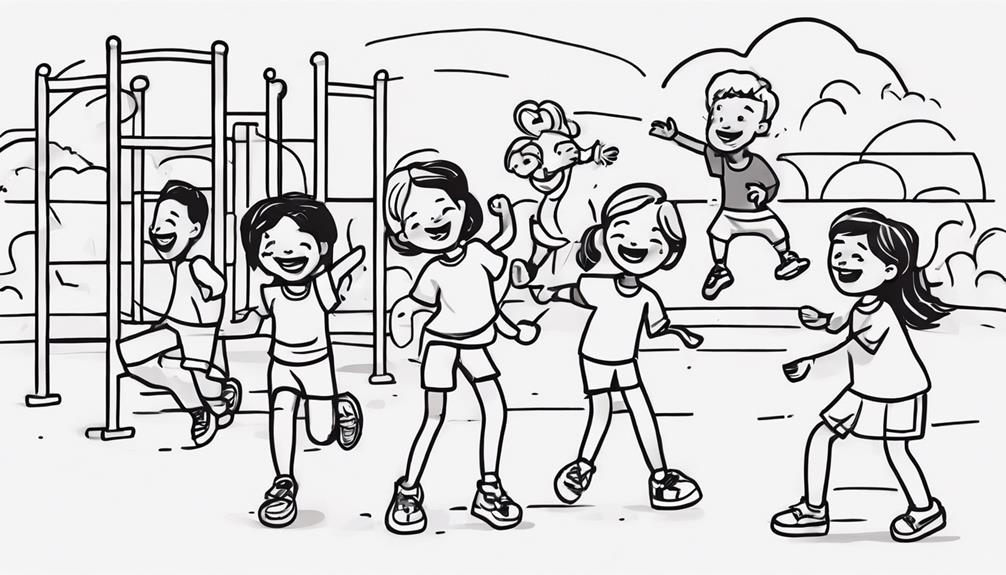
In the realm of social development for school children, interactions with their peers play a pivotal role in shaping their understanding of relationships and dynamics. Peer pressure, a significant component of these interactions, influences children's choices and behaviors as they seek acceptance and approval from their friends. This influence can sometimes lead to positive outcomes, such as encouraging academic success or participation in constructive activities. However, it can also have negative consequences, as children may feel compelled to engage in risky behaviors or conform to harmful social norms.
As school children navigate the complexities of peer interactions, they begin to discern power dynamics within their relationships. This awareness impacts how they communicate and behave, shaping their social skills and emotional development. Additionally, the fear of bullying looms large in these interactions, affecting children's self-esteem and overall social well-being. By learning to assert their individuality and navigate conflicts with peers, school children develop essential skills that lay the foundation for healthy social relationships in adolescence and beyond.
Social Challenges in Adolescents
Adolescents face a myriad of social challenges as they navigate peer pressure and strive to build essential social skills. The effects of peer pressure on behaviors and self-perception are profound, shaping the choices adolescents make and the paths they follow. Understanding these dynamics is crucial in fostering positive development and helping adolescents navigate the complexities of their social world.
Peer Pressure Effects
When navigating the complex landscape of social interactions during adolescence, individuals often find themselves grappling with the pervasive influence of peer pressure on their decisions and behaviors.
Peer Pressure Effects:
- Peer pressure can lead adolescents to conform to fit in with a social group, influencing their behaviors and decisions significantly.
- It can result in a range of outcomes, including positive ones like academic excellence encouragement or negative consequences such as risky behaviors.
- Adolescents may struggle with asserting their individuality and values when faced with peer pressure, highlighting the importance of developing strong communication skills, self-awareness, and the ability to make independent choices to resist negative influences effectively.
Building Social Skills
Developing robust social skills is crucial for adolescents to navigate the intricate web of social challenges they encounter during this developmental stage. Peer relationships play a significant role in shaping adolescents' social development, influencing their behaviors, attitudes, and overall well-being. Adolescents often face social challenges like peer pressure, identity formation, and managing independence, as well as navigating romantic relationships, conflicts, and social media influences. Building social skills in adolescents involves acquiring abilities such as empathy, effective communication, cooperation, and conflict resolution strategies. Fitting in, handling rejection, and managing social hierarchies in various settings can be particularly challenging for adolescents. By honing their social skills, adolescents can better cope with these challenges, establish healthier relationships, and foster positive social interactions essential for their overall growth and development.
Impact of Parental Involvement
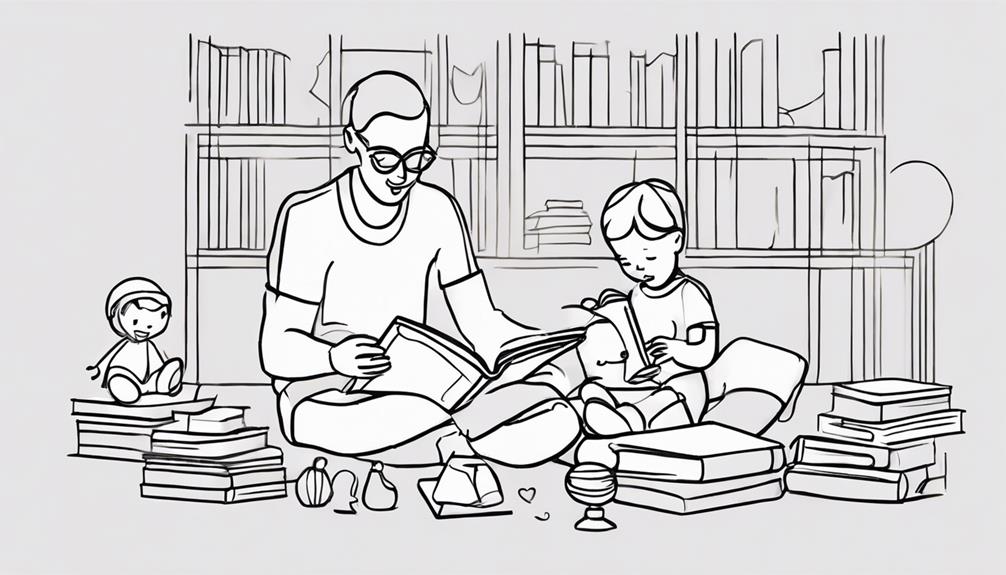
Parental involvement plays a crucial role in shaping a child's social development by serving as a primary model for social interactions and offering essential support. Parents significantly influence their child's social development through various means, impacting their healthy development positively:
- Modeling Behavior: Children observe and learn social behaviors by watching how their parents interact with others. Positive parental interactions can teach children effective communication and empathy skills.
- Guiding Social Skills Development: Understanding developmental milestones enables parents to assess and aid their child's progress in social skills. By providing opportunities for social growth, parents can help children develop communication abilities and foster friendships.
- Conflict Resolution Support: Parents offering advice on managing conflicts with peers can have a significant impact on a child's social development. Teaching children how to navigate disagreements constructively can enhance their social competence and emotional intelligence.
Building Empathy and Compassion
Empathy is the cornerstone of meaningful relationships, allowing individuals to connect on a deeper emotional level. Cultivating compassion through various techniques can further enhance one's ability to show kindness and support to others. The social impact of empathy extends beyond individual interactions, shaping a more understanding and supportive society.
Empathy in Relationships
In the realm of interpersonal dynamics, cultivating empathy and compassion is paramount for forging meaningful connections and promoting social cohesion. Empathy in relationships serves as a cornerstone for understanding and connecting with others on a deeper level. It involves recognizing, understanding, and sharing the feelings of others to build connections and foster compassion. Here are three key aspects of empathy in relationships:
- Enhanced Communication: Empathy fosters effective communication by promoting active listening and understanding others' perspectives.
- Conflict Resolution: Developing empathy helps individuals navigate conflicts and misunderstandings by considering others' feelings and needs.
- Emotional Intelligence: Practicing empathy leads to increased emotional intelligence, allowing for better management of emotions and improved social interactions.
Compassion Cultivation Techniques
Utilizing mindfulness-based strategies, individuals can engage in compassion cultivation techniques to enhance their empathy and compassion towards both themselves and others. These techniques, such as loving-kindness meditation, perspective-taking exercises, and gratitude reflections, aim to increase emotional intelligence, reduce stress, and improve interpersonal relationships. Research indicates that regular compassion training can induce positive changes in brain areas associated with empathy and emotional regulation. By cultivating compassion, individuals not only benefit personally but also contribute to fostering kindness, understanding, and connectedness within their communities. Through these practices, individuals can develop a deeper sense of empathy, leading to more harmonious relationships and a more compassionate society.
| Compassion Cultivation Techniques | ||
|---|---|---|
| Loving-Kindness Meditation | Perspective-Taking Exercises | Gratitude Reflections |
Social Impact of Empathy
Through the development of empathy and compassion, individuals contribute to the social fabric by fostering understanding, connection, and positive interactions within communities.
Deeper Meaning of Empathy:
- Enhanced Relationships: Empathy promotes better understanding and connection with others.
- Reduced Conflict: Empathy reduces aggression and enhances social bonding, leading to a more harmonious society.
- Pro-social Behavior: Cultivating empathy and compassion from a young age fosters kindness, altruism, and a sense of community responsibility.
Empathy, as the ability to understand and share the feelings of others, plays a crucial role in social interactions and community well-being. By nurturing empathy and compassion, individuals not only enrich their own lives but also contribute to creating a more empathetic and supportive society.
Social Competence in Adulthood
Navigating the intricate web of social interactions and relationships in adulthood demands a finely tuned sense of social competence. Adults with strong social competence possess a range of essential skills, including empathy, effective communication, conflict resolution abilities, and emotional intelligence. These individuals excel in forming and maintaining positive relationships across various domains such as work, family, and community. Social competence in adulthood is not only beneficial for career success but also crucial for maintaining healthy friendships and overall well-being.
Developing social competence in adulthood is an ongoing process that requires continuous learning, self-awareness, and the ability to adapt to diverse social situations. Individuals who actively work on enhancing their social skills tend to experience greater satisfaction in their relationships and personal lives. By honing their social competence, adults can navigate the complexities of social interactions with grace and effectiveness, leading to improved overall quality of life.
Cultural Influences on Social Development
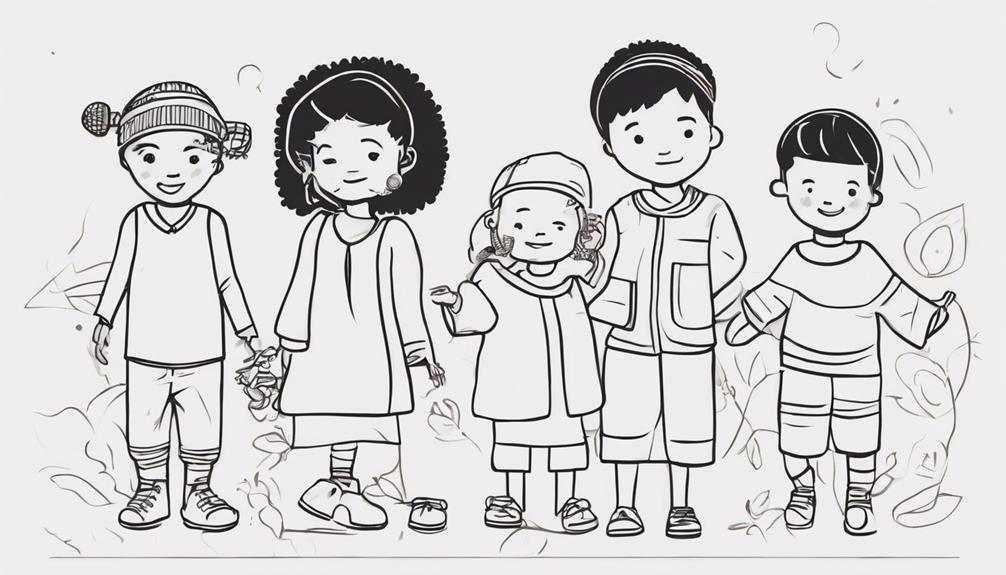
The impact of cultural influences on social development is profound, shaping children's behaviors, values, and interaction styles within their communities. Cultural norms, traditions, and beliefs significantly impact a child's development, influencing how they communicate, form relationships, and navigate social situations. Exposure to diverse cultural practices plays a crucial role in fostering empathy, respect, and understanding towards others who may have different social norms. Through cultural celebrations, rituals, and customs, children learn about social expectations, roles, and relationships, which are essential for their social development. Understanding cultural diversity in the context of a child's development enhances their ability to appreciate, accept, and adapt to various perspectives and traditions, promoting a more inclusive and empathetic society.
- Cultural influences shape children's behaviors, values, and interaction styles.
- Exposure to diverse cultural practices fosters empathy, respect, and understanding.
- Understanding cultural diversity enhances children's ability to appreciate and adapt to various perspectives.
Socialization and Identity Formation
Socialization is the foundational process by which individuals internalize societal norms and values, shaping their identity. Within this framework, social bonds serve as a crucial factor in the development of one's sense of self. Furthermore, the influence of peers and the role of family dynamics are significant in molding socialization and identity formation.
Social Bonds Shape Identity
Interactions with significant others during childhood play a pivotal role in shaping an individual's sense of self and place in society. These early social bonds have a profound impact on identity formation and social development. Here are three key ways in which social bonds shape identity:
- Values and Beliefs: Socialization influences the beliefs and values that individuals hold, shaping their worldview and moral compass.
- Self-Concept: Social bonds help individuals develop a sense of self and understand their unique identity within the larger social context.
- Emotional Well-being: Positive socialization experiences foster emotional development, contributing to a child's self-esteem and overall well-being.
Through these interactions, individuals learn to navigate social relationships, develop empathy, and acquire important social skills essential for their growth and integration into society.
Peer Influence on Socialization
Peers exert a significant influence on individuals' attitudes, behaviors, and beliefs as they navigate the complex process of identity formation. During adolescence, peer influence plays a crucial role in shaping social skills, values, and self-concept. Peer groups offer a platform for learning social norms, empathy development, and honing communication and conflict resolution abilities. Seeking acceptance and validation from peers often guides choices, preferences, and social interactions. Positive peer relationships can enhance a sense of belonging, support emotional well-being, and contribute to the establishment of a strong social identity. Understanding the impact of peer influence on socialization is vital in comprehending how individuals form their identities and interact within society.
Family Role in Development
Within the intricate web of human development, the family unit stands as a foundational pillar, wielding substantial influence on the socialization and identity formation of individuals. The family plays a crucial role in shaping socialization by imparting values, norms, and behaviors to children. Through identity formation within the family, children comprehend their societal position and cultivate a sense of belonging. Family interactions are instrumental in honing children's social skills, emotional intelligence, and communication tendencies. Parental modeling of social behaviors significantly impacts how children learn to engage with others and navigate various social contexts. Moreover, family support and active participation play a pivotal role in fostering children's social development and overall well-being.
Impact of Technology on Social Skills
In the realm of social development, the profound impact of technology on the refinement of social skills is becoming increasingly evident. The use of technology, particularly excessive screen time, has been linked to hindering children's social skills development. Face-to-face interactions, crucial for understanding social cues, may be reduced, leading to a potential decrease in empathy and emotional intelligence. Non-verbal cues, essential for interpreting emotions, can be limited through technology, affecting a child's ability to comprehend and express feelings effectively.
Moreover, the prevalence of social media platforms has introduced new challenges for children, such as cyberbullying, which can impede their capacity to navigate conflicts and form healthy relationships. Over-reliance on technology for communication may result in decreased real-life social interactions, hampering the development of crucial interpersonal skills. This disconnect from face-to-face communication could contribute to feelings of isolation and difficulties in establishing meaningful connections with others. As technology continues to evolve, understanding its impact on children's social development is paramount in promoting healthy social skills acquisition.
Social Development in Different Environments
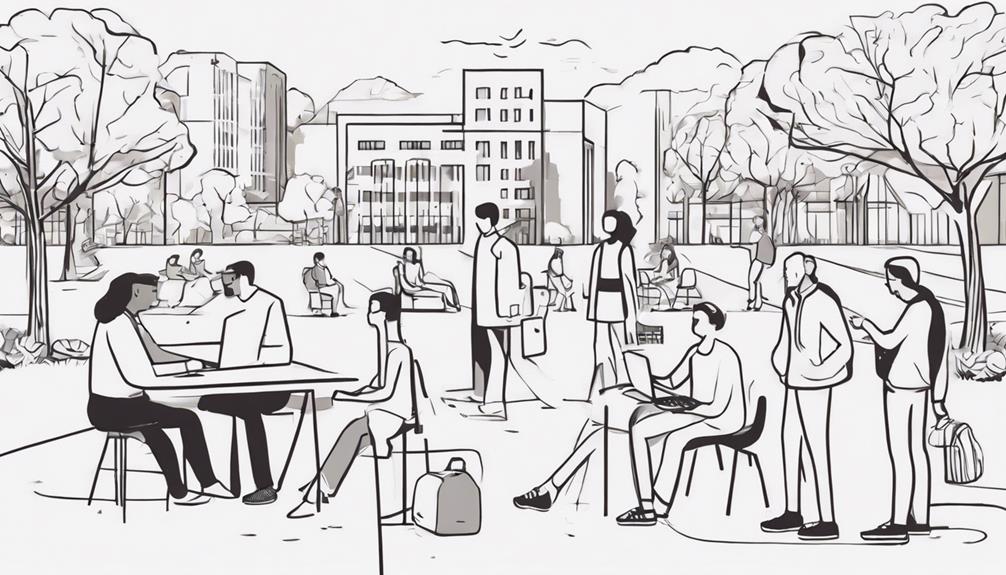
Social development, influenced by a myriad of environmental factors, plays a pivotal role in shaping a child's social skills and interactions. The environment in which a child grows up significantly influences their social development:
- Family Dynamics: The family unit serves as the primary environment where a child learns social norms, communication styles, and relationship dynamics. Positive family interactions can foster empathy and cooperation skills in children.
- Cultural Influences: Cultural beliefs, traditions, and values impact how children perceive and engage with the world around them. Exposure to diverse cultures can enhance a child's social awareness and acceptance of others.
- Community Settings: The quality of interactions within the community, access to resources, and exposure to different social situations can shape a child's ability to navigate social challenges and build meaningful connections.
Understanding how various environments influence a child's development is crucial for designing interventions and support systems to enhance their social skills and overall well-being. By recognizing the significance of different environments, we can promote positive social development outcomes for children.
Promoting Positive Social Behaviors
Encouraging the development of positive social behaviors in children involves fostering skills such as cooperation, conflict resolution, and emotional intelligence. By promoting cooperation through problem-solving activities, children learn the value of working together towards a common goal. Teaching sharing and conflict resolution skills provides children with the tools to navigate social interactions positively, fostering healthy relationships with their peers. Additionally, assisting children in expressing their feelings appropriately enhances their emotional intelligence, allowing them to understand and manage their emotions effectively.
Modeling peaceful conflict resolution strategies is crucial in helping children learn how to resolve conflicts peacefully. By setting a peaceful example and encouraging empathy, children can develop a deeper understanding of others' perspectives and feelings. Teaching peaceful conflict resolution techniques not only contributes to positive social development but also equips children with essential skills that they can carry into adulthood, promoting harmonious relationships and effective communication in various social settings.
Addressing Social Anxiety and Isolation

Fostering healthy social development in children involves recognizing and addressing the challenges of social anxiety and isolation that can hinder their interactions and relationships. Social anxiety, characterized by intense fear of social situations, can lead to avoidance behaviors, while isolation may result from such anxiety, causing individuals to withdraw from social activities and relationships. To address these issues effectively in a child's development, consider the following:
- Early Intervention: Identifying signs of social anxiety and isolation in children at an early stage can prevent the escalation of these issues and facilitate timely intervention.
- Therapeutic Strategies: Implementing cognitive behavioral therapy or other evidence-based interventions can help children overcome social anxiety by targeting negative thought patterns and maladaptive behaviors associated with social interactions.
- Social Support Systems: Creating a supportive environment that encourages positive social interactions and provides avenues for seeking help can significantly aid children in coping with social anxiety and avoiding isolation.
Long-Term Benefits of Strong Social Development
The cultivation of robust social skills during childhood is strongly correlated with enhanced cognitive abilities, mental well-being, and adaptive responses to life's challenges. Investing in social development early on not only sets the stage for immediate positive outcomes but also yields a myriad of long-term benefits. Individuals who possess strong social development are more likely to navigate the complexities of adulthood successfully. They exhibit reduced tendencies towards substance abuse, experience lower rates of depression and anxiety, and demonstrate improved resilience in coping with stress and adversity. Furthermore, these individuals tend to excel in communication, exude self-confidence, and are better equipped to handle life's obstacles.
Moreover, the advantages of early social development extend into adulthood, fostering healthier relationships, increasing the likelihood of assuming leadership roles, and enhancing community engagement and contribution. Recognizing the profound impact of social skills on various facets of life underscores the importance of nurturing these abilities from a young age for the realization of enduring personal and societal benefits.
Frequently Asked Questions
What Is the Meaning of Social Development?
Social development encompasses the growth and refinement of social interactions, encompassing a child's ability to form relationships, communicate effectively, and navigate social situations. It involves acquiring vital communication skills, fostering positive attitudes towards others, and building self-esteem. Social development is crucial for children to understand social cues, express emotions appropriately, and establish meaningful connections with peers. Parents are instrumental in nurturing social development by modeling social behavior and providing guidance for their children's social growth.
What Is the Social Development of Early Childhood?
During early childhood, social development involves fostering play-based interactions that lay the foundation for crucial skills. These interactions are pivotal in helping children navigate social situations, develop empathy, and enhance communication abilities. Through engaging in play-based activities, children learn cooperation, problem-solving, and emotional regulation, which are essential for forming positive relationships and building a strong sense of self within their community. The dynamic nature of play allows for multifaceted growth in early childhood social development.
What Would Be a Social Development?
Social development encompasses the acquisition and refinement of social skills essential for effective interactions with others. These skills involve communication, empathy, cooperation, and conflict resolution. Through social development, individuals learn to navigate social situations, build relationships, and contribute positively to society. Cultivating strong social skills is crucial for fostering healthy relationships, enhancing emotional intelligence, and promoting overall well-being.
What Are the Three Types of Social Development?
Social skills, a cornerstone of social development, encompass emotional, cognitive, and moral aspects. Emotional development nurtures empathy and relationship building. Cognitive development enhances problem-solving, learning, and understanding social norms. Moral development cultivates ethical decision-making and a sense of societal values. These intertwined forms of social development are crucial for individuals' growth and successful integration into society. Mastering these dimensions empowers individuals to navigate complex social landscapes with confidence and competence.
Conclusion
In the intricate tapestry of human development, social interactions form the threads that weave together the fabric of society. Nurturing positive social development from infancy to adolescence is akin to tending to a delicate garden, where the seeds of communication, empathy, and cooperation blossom into flourishing relationships and resilient individuals. By understanding the importance of social skills and addressing challenges that may arise, we pave the way for a future where strong social bonds lead to a thriving community.
